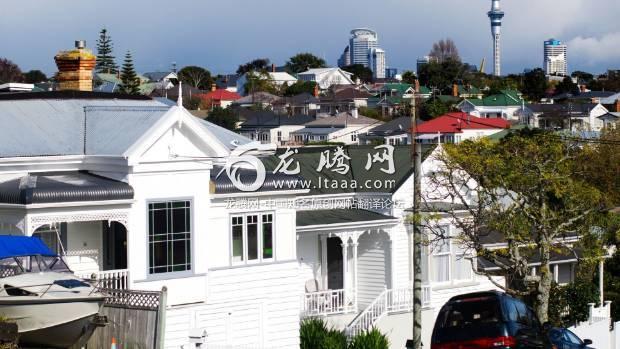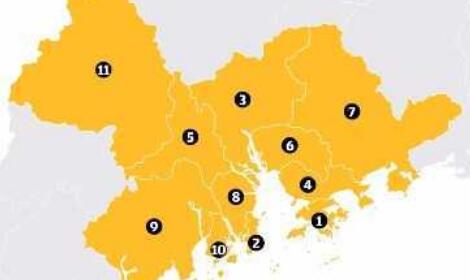新西兰3%的房子都出售给了外国人 [新西兰媒体]
新西兰统计局的数据显示,仅在一个季度内,就有超过3%的房子出售或者转让给了外国人。
3 per cent of NZ house sales to foreigners
新西兰3%的房子都出售给了外国人
Only just over 3 per cent of houses sold or transferred in the March quarter went to foreigners, Stats NZ data shows.
新西兰统计局的数据显示,仅在一个季度内,就有超过3%的房子出售或者转让给了外国人。
Of the properties which transferred to new ownership in the three months, 3.3 per cent went to people who were not citizens or residents, up from 2.9 per cent in December.
在这3个月转为新屋的物业中,3.3%的物业属于非市民或居民,高于去年12月的2.9%。
That includes not just sales but transfers of ownership due to a death, marriage settlement or other administrative changes.
这不仅包括销售,还包括因死亡、婚姻和解或其他行政变更而发生的所有权转移。
"This increase was driven by a fall in the total number of transfers, and a small rise in the number of transfers to overseas people," property statistics manager Melissa McKenzie said.
房地产统计经理Melissa McKenzie说:“这一增长是由资金转移总量的下降和向海外人民转移的数量的小幅增长所推动的。
"The proportion of overseas sellers also increased in the March quarter, to reach 1.5 per cent, after staying steady at 1.3 per cent for a year."
“海外卖家的比例在3月份也有所上升,达到1.5%,此前一年一直保持在1.3%的水平。”
Economic development minister David Parker said because the rate of sales by foreign owners was lower than the purchase rate, the share of homes in foreign ownership was increasing.
经济发展部部长大卫·帕克说,由于外国业主的销售速度低于购买率,外国人拥有的房屋份额在增加。
He said the housing stock should be a New Zealand asset, not an international one.
他说,房屋存量应该是新西兰的资产,而不是国际资产。
"This is a growing problem in New Zealand borne of the concentration of wealth occurring around teh world in a small percentage of the global population who have captured most of the wealth generated in recent decades."
“这在新西兰是一个日益严重的问题,因为全球财富集中在一小部分人身上,而这些人占据了近几十年来产生的大部分财富。
Nearly 33,000 homes were transferred in the March 2018 quarter. Almost four in five of these were transferred to at least one New Zealand citizen. The other one in five were transferred to corporate entities, resident-visa holders, and overseas people.
在2018年3月的季度,有近3.3万户家庭被转移。其中近五分之四被转移到至少一名新西兰公民。另外五分之一被转移到企业实体、居民签证持有人和海外人士手中。
"These figures are very close to the numbers that REINZ released at the back-end of 2017 which indicated that only 3.8 per cent of sales were to offshore buyers. In our view, the figures from Statistics NZ confirm that it's not worth going ahead with a blanket ban on foreign buyers across New Zealand," said Real Estate Institute (REINZ) chief executive Bindi Norwell.
这些数字与REINZ在2017年后发布的数据非常接近,该数据显示,只有3.8%的销售额来自海外买家。我们认为,NZ统计局的数据证实,全面禁止在新西兰购买外国买家是不值得的,”房地产协会(REINZ)首席执行官宾蒂·诺维尔说。
"As we outlined in our submission to the Select Committee, if foreign buyers are banned from purchasing property in New Zealand, it could significantly impact development funding which would therefore impact supply and potentially see prices increasing – the exact opposite effect the ban is seeking to have."
“正如我们在提交给特别委员会的文件中所概述的那样,如果外国买家被禁止在新西兰购买房产,可能会严重影响开发资金,从而影响供应,并可能导致价格上涨——这与禁令所寻求的效果恰恰相反。”
In the March 2018 quarter, nearly 10 per cent of all home transfers were to corporate entities, excluding most trusts. Information on the ownership of these entities is not currently available.
在2018年3月的这个季度,近10%的住房转让资金流向了企业实体,不包括大多数信托公司。关于这些实体的所有权的信息目前还没有。
The territorial authority with the highest proportion of home transfers to people who weren't New Zealand citizens or resident-visa holders was Queenstown-Lakes district (9.7 per cent), followed by Auckland (7.3 per cent).
将住房转让给非新西兰公民或居民签证持有者的比例最高的地区是皇后镇湖区(9.7%),其次是奥克兰(7.3%)。
Including homes, land, and commercial property, 4.3 per cent of all property transfers involved at least one buyer with overseas tax residency in the March 2018 quarter.
其中包括住宅、土地和商业地产,其中4.3%的房产转让至少涉及到2018年3月的海外税务居住权。
The tax residency status for a further 41 per cent of transfers was unknown.
另外41%的转移支付的税务居留权身份尚不清楚。
"Many buyers and sellers are exempt from providing tax details if they're transferring their main home," McKenzie said.
麦肯齐说:“许多买家和卖家如果要转移他们的主要房屋,可以不提供税务细节。”
"However, citizenship and visa information is required for nearly all transfers, excluding a small number of transfers such as Māori land transfers and Treaty of Waitangi settlements."
“然而,几乎所有的转移都需要公民身份和签证信息,不包括少数的转移支付,如mori土地转让和怀坦吉定居点条约。”
Tax residency is not the same as nationality. An overseas tax resident may be a New Zealand citizen living overseas. Alternatively, a New Zealand tax resident could be an overseas citizen who lives in New Zealand, or a company with overseas owners.
税务居住权与国籍不同。海外税务居民可以是居住在海外的新西兰公民。或者,新西兰税务居民可以是居住在新西兰的海外公民,也可以是拥有海外所有者的公司。
版权声明
我们致力于传递世界各地老百姓最真实、最直接、最详尽的对中国的看法
【版权与免责声明】如发现内容存在版权问题,烦请提供相关信息发邮件,
我们将及时沟通与处理。本站内容除非来源注明五毛网,否则均为网友转载,涉及言论、版权与本站无关。
本文仅代表作者观点,不代表本站立场。
本文来自网络,如有侵权及时联系本网站。
图文文章RECOMMEND
热门文章HOT NEWS
-
1
他们认为,协商失败的峰会实际上符合中国的利益,而且北京的影响力将增加,因...
- 2
- 3
- 4
- 5
- 6
- 7
- 8
- 9
- 10
推荐文章HOT NEWS
-
1
这是中国中部河南省郑州的一个普通的星期六。富士康工厂大楼上空笼罩着...
- 2
- 3
- 4
- 5
- 6
- 7
- 8
- 9
- 10











